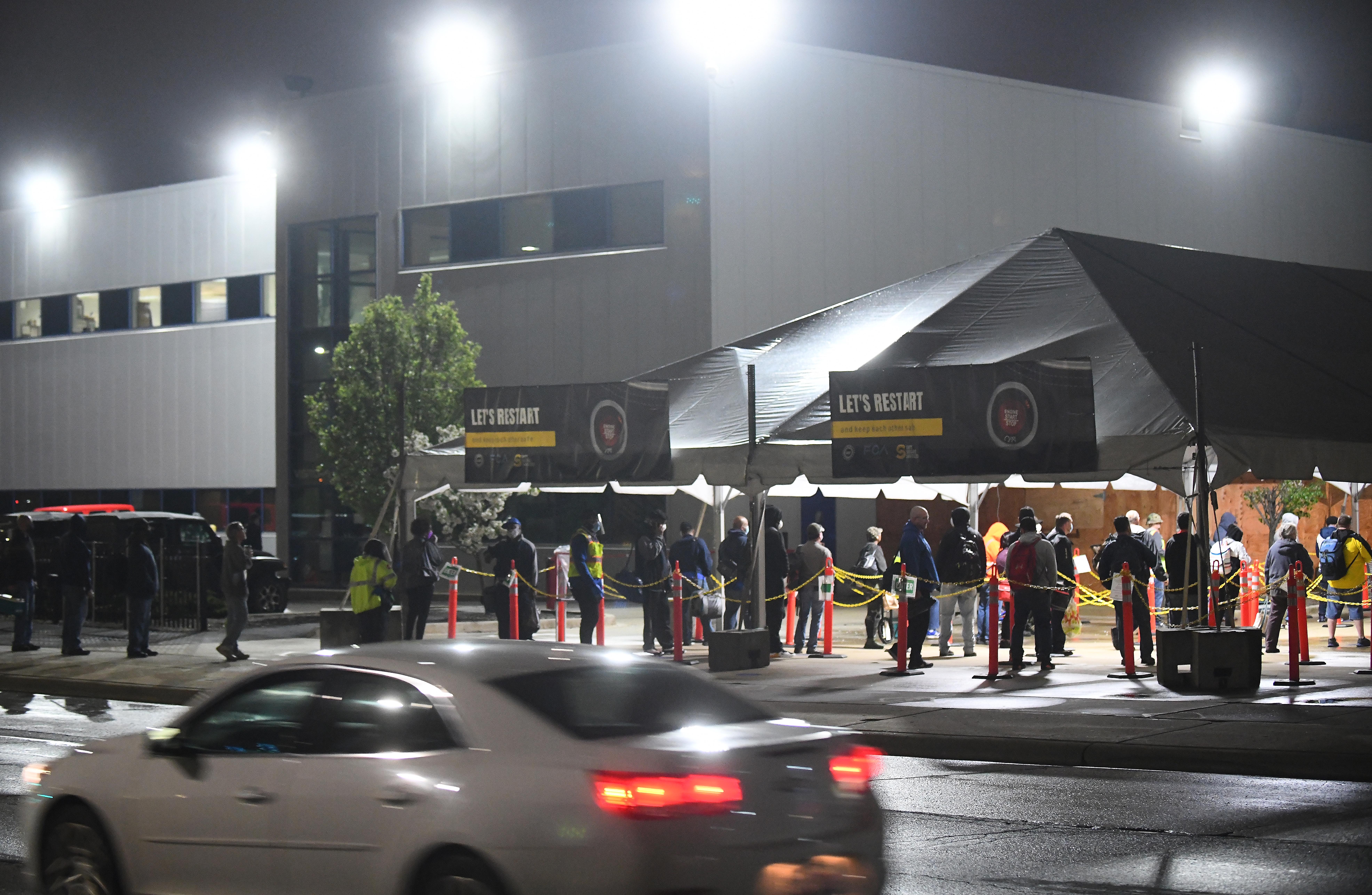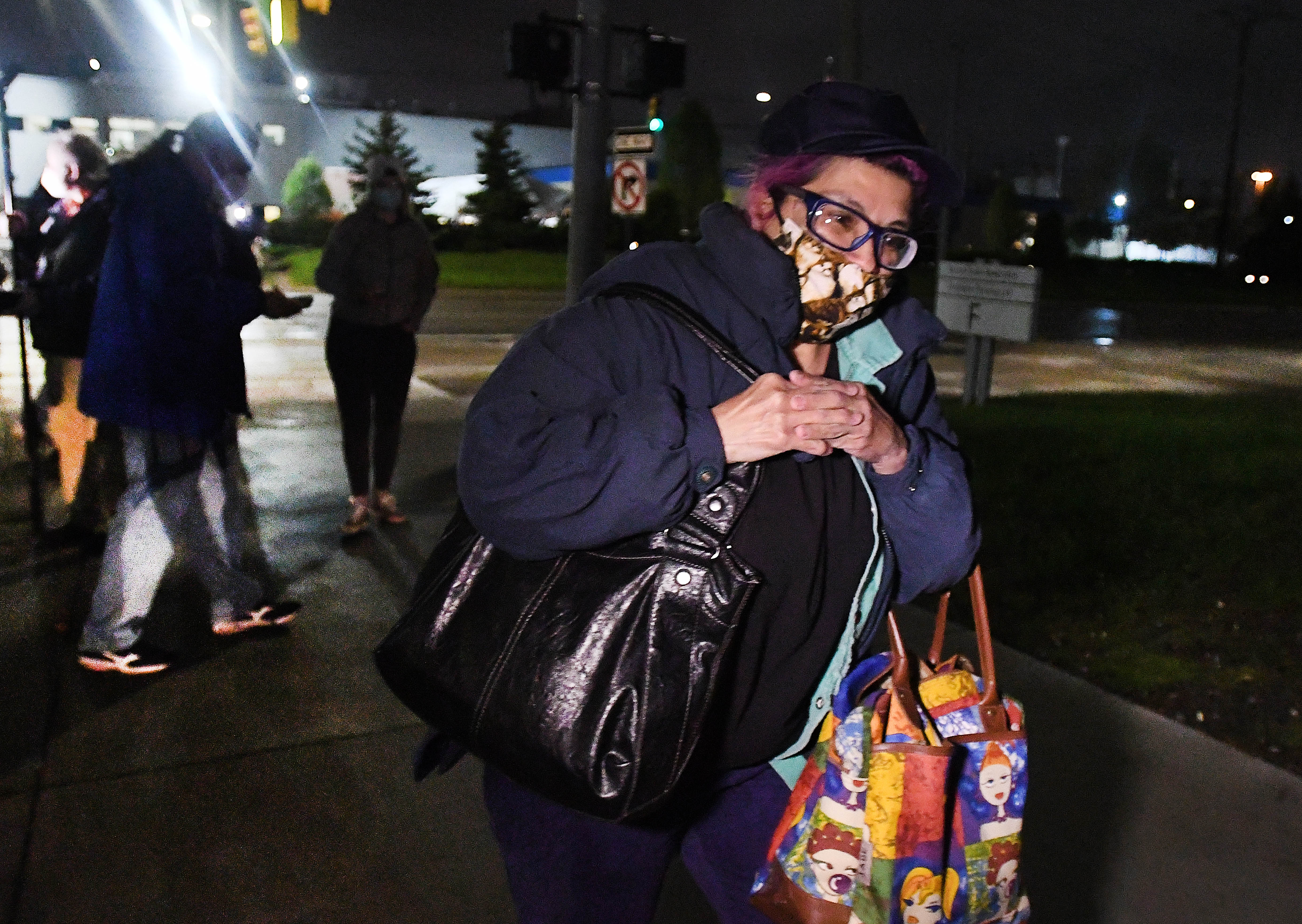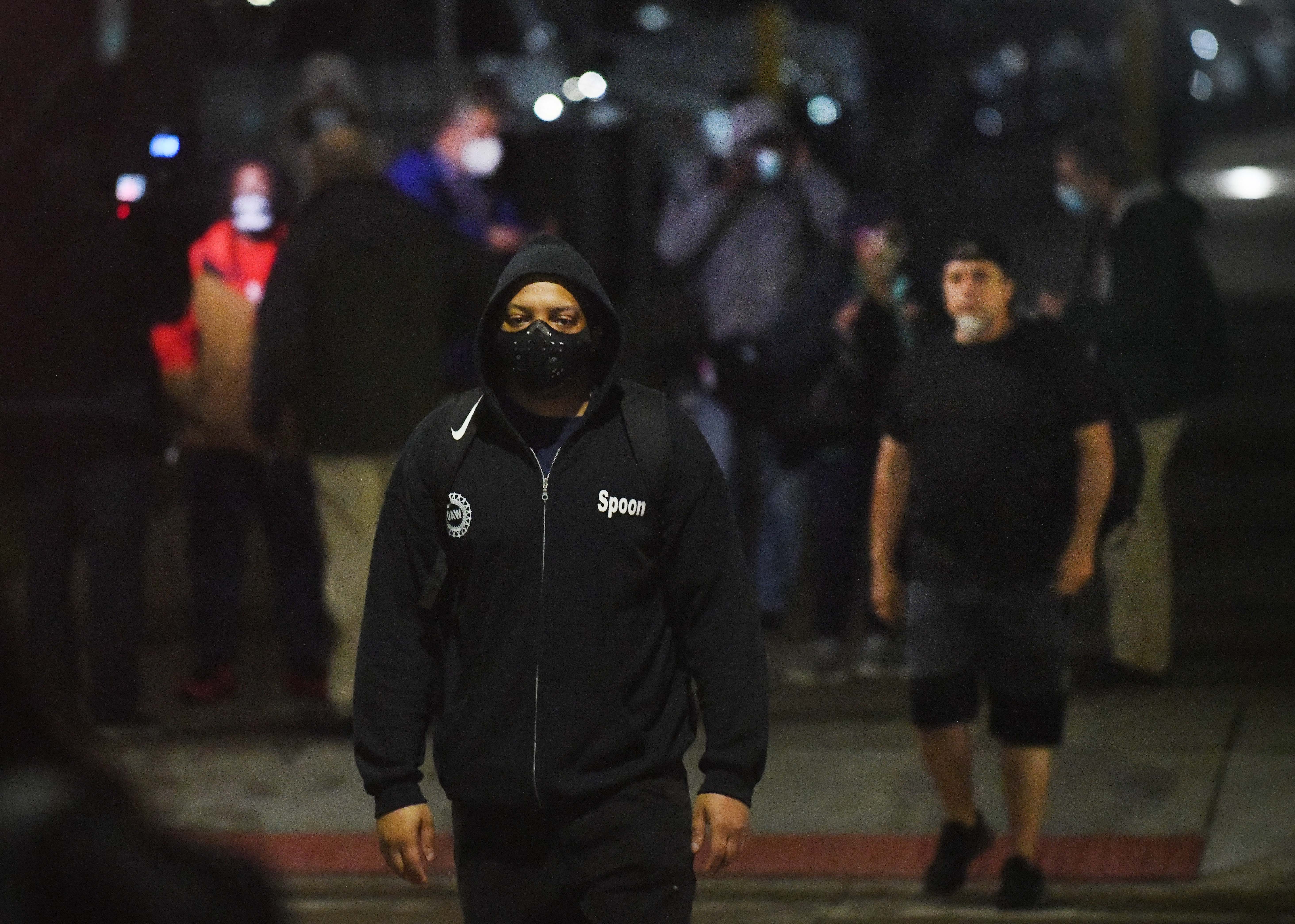Workers return to Big Three plants in major test for auto industry

Dajuan Hampton was headed to his 5 a.m. shift at Fiat Chrysler Automobiles NV Warren Truck plant with a mask strapped around his head when former first lady Michelle Obama came over the radio to encourage listeners to stay home.
Instead, Hampton, like thousands of other autoworkers heading back to plants after an eight-week pandemic-induced shutdown, kept driving to work on Monday — the first step in the historic restart of an industry that accounts for nearly 4% of the nation’s economy.
"The factory is the most cross-contaminated workplace next to a buffet. Period," said Hampton, 39, of Detroit, who installs seats. "There is no way to make it coronavirus-proof."
Most workers at FCA Warren Truck came prepared for a restart under new safety guidelines, with masks already strapped around their faces. But many expressed concern and frustration about going back to work when uncertainty about the virus remains.
How successful the resumption of auto production ultimately will be, will depend in large part on whether Ford Motor Co., Fiat Chrysler Automobiles NV and General Motors Co. can keep their employees safe at work. Workers who returned to work Monday expressed a mixture of optimism and skepticism that it will be possible to prevent COVID-19 from spreading in manufacturing plants.
Hampton's concerns weren't eased after the eight-hour shift. He kept thinking about that message from the former first lady telling him the importance of staying home to stay safe, he said: "This is unreal. We are going back to work to build a truck while Michelle Obama is telling us to stay home."
Meanwhile, work was "pretty smooth" at Ford Motor Co.’s assembly and stamping plants in Wayne, said MaryLisa Poole, 57, of Canton Township, who works as a receiver for trucks delivering materials: "As far as the virus, (there's) nothing to mention. I wore my mask. I had my face shield.”
The restart of vehicle production at GM, Ford and FCA, one week after major suppliers resumed production, is the linchpin of an unprecedented and coordinated effort to rev up almost the entire auto industry, foreign and domestic, after the shutdown caused by the coronavirus pandemic and government responses to it.
"It’ll be the first time in history everybody comes back up at the same time," Gary Johnson, Ford's chief manufacturing and labor affairs officer, told The Detroit News last week. "So that will be a test."
The restart will test the new health and safety protocols the automakers have developed and implemented already in China, in Europe and in U.S. plants producing medical equipment and supplies. How effective those protocols prove to be should help ease anxieties of those returning to work.
Hampton reserved some of his criticism for the UAW, saying: "I am little taken back because I thought there would be resistance from the union because of this pandemic." To him, there's no logic in going back into a plant to build trucks with new cases still cropping up: "If the numbers decrease, then I would see more reasoning into bringing us back."
Michigan on Monday confirmed 24 deaths tied to the virus, marking the ninth straight day with fewer than 100 new deaths from the illness reported in the state. Monday was the fourth consecutive day that the state had fewer than 800 new cases of COVID-19, for a total 51,915 known cases since reporting began, according to state data.
But while the UAW can advocate for stronger health and safety protections, the contracts between the union and the automakers give the companies the final say on when production resumes, UAW spokesman Brian Rothenberg said.
"The UAW will continue to do everything we can to protect the health and safety of all members as plants reopen," the UAW said in a statement Sunday, noting that the union continues to advocate for the automakers to test all workers for COVID-19 when testing becomes more widely available.
Prior to restarting, the automakers did not know exactly how many workers would return, or how many would be unable to work after answering questions about their potential exposure to the virus. But, Rothenberg said he heard from all three companies Monday that they had full staffing, and in some cases, more than expected. Absenteeism did not appear to be an issue.
In a statement, FCA said it was "pleased" with Monday's restart. The automaker brought back some 12,000 U.S. employees. "Everyone followed the new protocols and our plants were fully staffed to start production," the company said. "We are very confident that we have all the right protection measures in place to keep them all safe."
As they shuffled back into work Monday morning, however, some employees at the Warren Truck plant were not quite as convinced. More than 1,280 workers were called back to work there for the first shift from 5 a.m. to 1 p.m. A second shift is scheduled to restart in a few weeks.

At least one worker was sent home after answering "yes" to being exposed to the coronavirus.
Theresa Segura, 61, of Lincoln Park recently saw her brother, who has tested positive for the virus. She'll have to get tested now before she can go back to work, which is fine with her because she doesn't want to get any of her co-workers sick: "There's a lot of other people out here sick already, and you don't want another life to pass away."
Segura knew some of FCA Warren Truck workers who died from COVID-19 complications. At least four Warren Truck employees have died after contracting the coronavirus, prompting heightened anxiety among employees at the plant about returning to work.
"Everybody should be tested before they go in the plant because you can go in the plant and get sick and you don't know it," said Segura. "You are risking your life to go in there."
Not all employees will be tested for COVID-19, though the companies are offering testing through their medical teams or partner health systems to employees who have symptoms of the virus.
FCA assembly worker Richard Werth, 56, of Redford Township, a 25-year employee of the Warren Truck plant, was not necessarily excited about coming back Monday after being off for two months. But he wasn't concerned because he's already "been out and about."
"It's no biggie as long as they take precautions," he said. "Just be safe. Keep your hands clean. Keep your distance."

Meanwhile, Harnett Weatherspoon, 34, of Detroit works in the trim department at FCA's Warren Truck. He was "very fearful of coming to work" because he believes it's not safe, despite new virus-related safety protocols.
"If you guys have to do all this, it's not safe for us to be in here," Weatherspoon said of the company's safety precautions. "Why am I coming to work with this on?" he asked, pointing to the black mask around his head.

An FCA employee at Sterling Heights Assembly plant who returned early to help prepare the plant for restart was also sent home Wednesday after testing positive for COVID-19, causing some concerns among the rank-and-file.
In a letter sent home to workers, Mark Stewart, the company's chief operating officer in North America, said workers were wearing the required face masks and safety glasses provided to them and that the company was continuing to strengthen its procedures.
Another complication for the industry, which provides hundreds of thousands of American jobs, is the potential for snarls in the supply chain. Already, Daimler AG said it was idling its Mercedes-Benz plant in Alabama, which had reopened in late April, due to a parts shortage. Having to shut down factories after reopening them is the last thing automakers and their suppliers want, according to experts, and is a strain on their capital.
Mexico accounts for almost 40% of imported auto parts. President Andrés Manuel López Obrador announced plans last Wednesday to begin a phased reopening in his country on Monday to coincide with many U.S. plants. After some confusion about when exactly plants there are allowed to reopen, the Mexican government clarified that plants can begin reopening this week after receiving approval for their safety plans.
"The industry shut down all at the same time," said Jeff Schuster, head of global vehicle forecasting for LMC Automotive. "In terms of a parts shortage, that's still a risk. And all it takes is many outbreaks in a supplier plant or assembly plant for things to have to get re-evaluated."
The companies are returning workers in phases. GM last week restarted production at three engine and propulsion plants to fill its supply pipeline but is recalling one shift at most of its assembly plants this week. Ford's three-shift plants are starting with two, and two-shift plants with one. Fiat Chrysler has said it is basing its ramp up on demand and will reduce jobs per hour to ensure safe distancing.
Workers will go through safety briefings at all of the companies before production resumes. The companies also have sent home fliers and packets with information on the return-to-work procedures.
“The last thing we want is to see a spike when the governor starts pulling back restrictions,” said Jim Glynn, GM's vice president of global workplace safety. “The reason we are sharing all of this information is because we want to be successful. Everybody has to make that decision: ‘Do I feel comfortable coming to work?’ We want everybody to feel comfortable."
The automakers have installed plexiglass barriers, signs and other cues to help with social distancing in the plants. Ford is providing wristwatches that beep when employees get within 6 feet and that can help with contact tracing if a case is identified.
The automakers are having employees fill out questionnaires asking them about travel and if they are experiencing symptoms. GM and Ford also are checking temperatures with thermal cameras; FCA is providing temperature strips for employees to check daily at home.
The protocols will be a transition, company executives say, adding that plant management will continue to follow up with employees about questions and concerns throughout the week.
"Every human being, myself included, is going to have some anxiety," said Shaun Whitehead, Ford's director of manufacturing, transmission and driveline components, last week. "We're going to give ourselves some time. ... There are a lot of very small things that we do differently now."
khall@detroitnews.com
jgrzelewski@detroitnews.com
bnoble@detroitnews.com